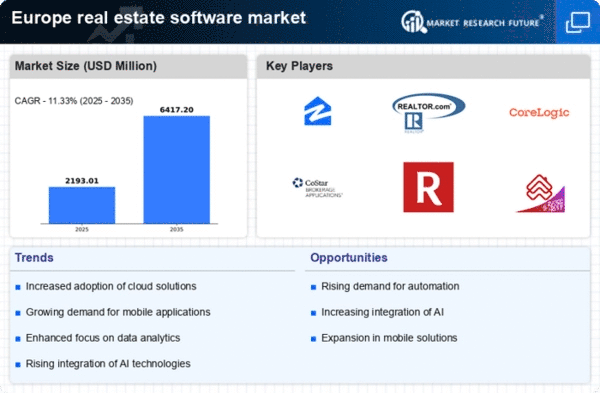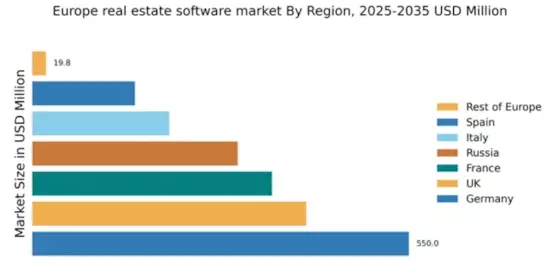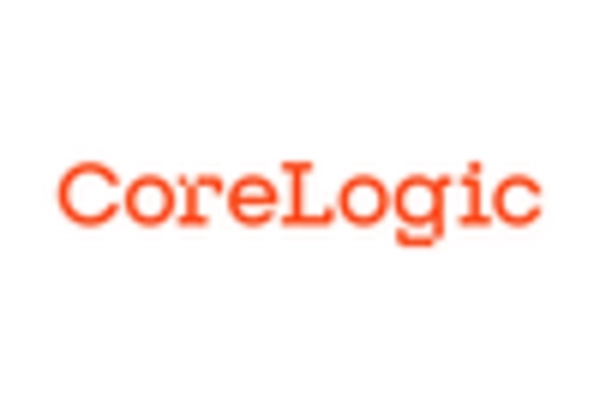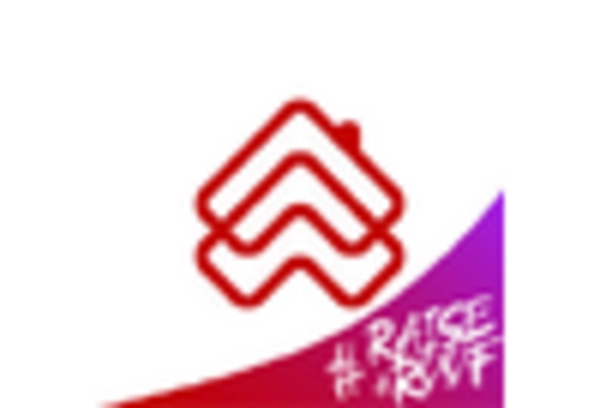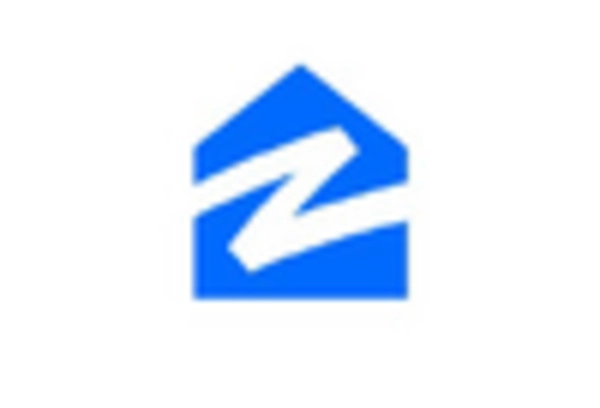Regulatory Compliance and Risk Management
In the context of the real estate-software market in Europe, regulatory compliance and risk management emerge as critical drivers. The evolving landscape of real estate regulations necessitates that firms adopt software solutions capable of ensuring compliance with local laws and standards. As of 2025, nearly 40% of real estate companies report challenges in navigating regulatory requirements, highlighting the need for robust software tools that can automate compliance processes. Additionally, the increasing focus on data security and privacy regulations, such as GDPR, compels organizations to invest in software that safeguards sensitive information. This trend indicates a growing recognition of the importance of risk management in real estate operations, thereby propelling the demand for specialized software solutions. The real estate-software market is thus positioned to benefit from the heightened focus on compliance and risk mitigation.
Rising Demand for Property Management Solutions
The real estate-software market in Europe experiences a notable surge in demand for property management solutions. This trend is driven by the increasing complexity of managing diverse property portfolios, which necessitates sophisticated software tools. As of 2025, approximately 35% of property managers in Europe utilize specialized software to streamline operations, enhance tenant communication, and optimize maintenance processes. The integration of automation features within these solutions is particularly appealing, as it reduces operational costs and improves efficiency. Furthermore, the growing emphasis on tenant satisfaction and retention propels property managers to adopt advanced software solutions that facilitate better service delivery. Consequently, the real estate-software market is likely to witness sustained growth as property management firms increasingly recognize the value of technology in enhancing their operational capabilities.
Increased Focus on Customer Relationship Management
The real estate-software market in Europe is witnessing an increased focus on customer relationship management (CRM) solutions. As competition intensifies, real estate firms recognize the importance of maintaining strong relationships with clients and prospects. CRM software enables organizations to manage interactions, track leads, and analyze customer data effectively. As of 2025, it is estimated that around 45% of real estate companies in Europe utilize CRM systems to enhance their marketing strategies and improve client engagement. This trend indicates a shift towards data-driven decision-making, where firms leverage customer insights to tailor their services. The real estate-software market is thus likely to benefit from the growing demand for CRM solutions that facilitate personalized communication and foster long-term client relationships.
Growing Interest in Sustainability and Green Building
The real estate-software market in Europe is increasingly influenced by the growing interest in sustainability and green building practices. As environmental concerns gain prominence, real estate developers and property managers are seeking software solutions that support sustainable practices. Approximately 30% of new developments in Europe are now incorporating green building certifications, which require specific software tools for tracking energy efficiency and sustainability metrics. This trend reflects a broader societal shift towards environmentally responsible practices, prompting the real estate-software market to adapt and innovate. Software solutions that provide analytics on energy consumption and carbon footprint are becoming essential for compliance with emerging regulations and for meeting consumer demand for sustainable living options. As such, the market is likely to see a rise in demand for software that aligns with these sustainability goals.
Technological Advancements in Real Estate Transactions
Technological advancements significantly influence the real estate-software market in Europe, particularly in the realm of transactions. The rise of blockchain technology and smart contracts is transforming how real estate transactions are conducted, enhancing transparency and security. As of 2025, it is estimated that around 25% of real estate transactions in Europe may incorporate blockchain technology, streamlining processes and reducing the potential for fraud. This shift towards digital transactions necessitates the development of software solutions that can seamlessly integrate these technologies. Furthermore, the increasing adoption of electronic signatures and digital documentation is reshaping the transaction landscape, making it more efficient and accessible. Consequently, the real estate-software market is likely to experience growth as stakeholders seek innovative solutions that facilitate secure and efficient transactions.


